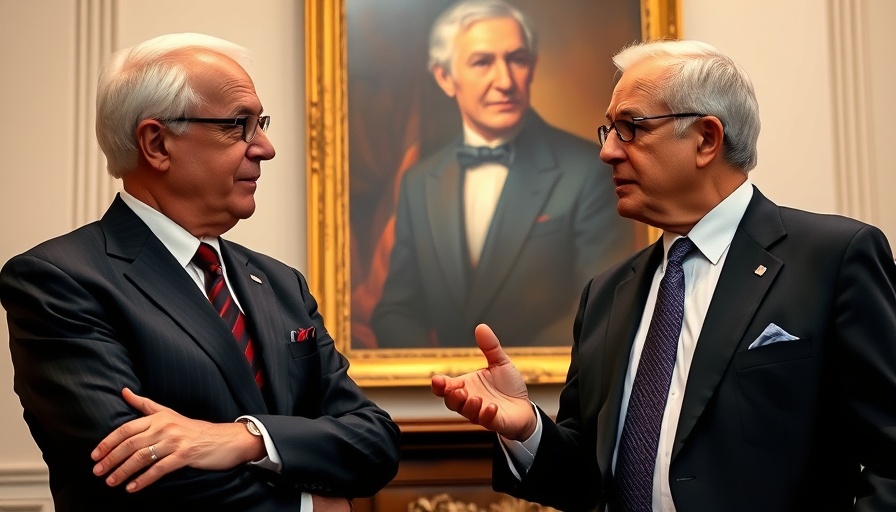
Dr. Oz's Controversial Call for Health Responsibility
In a recent announcement during his swearing-in ceremony as head of the Medicare and Medicaid Services, Dr. Mehmet Oz encouraged Americans to cut down on drug spending by adopting healthier lifestyles. His statement, "The best way to reduce drug spending is to use less drugs because you don’t need them because you’re healthy,” has drawn significant criticism. Many argued that this advice oversimplifies the reality for millions living with chronic illnesses who rely on medication for their everyday well-being.
Health Implications for Chronic Illness Patients
Oz’s remarks particularly triggered backlash from patients managing chronic conditions like diabetes, heart disease, and autoimmune disorders. Critics argue that suggesting people simply "stay healthy" is not only unrealistic but also dismissive of the complexities involved in managing health issues. As one frustrated user on social media pointedly remarked, "Tell that to a diabetic!" This sentiment encapsulates the frustration felt by many who are dependent on medication as part of their daily routine.
The Dangers of Oversimplifying Health
Highlighting the problem with Oz's message is the apparent assumption that health is purely a matter of choice and willpower. This perspective can be harmful and disheartening for individuals who find themselves battling medical conditions often beyond their control. Moreover, many people experience systemic barriers—whether financial, social, or educational—that complicate their ability to maintain good health. Critics have argued that the real issues in the healthcare system are rooted in access and inequitable treatment, not just personal responsibility or lifestyle choices.
Broader Implications for Public Health Messaging
This incident raises larger questions about the effectiveness of public health messaging. Advocates for wellness and preventative health often emphasize self-care strategies, such as healthy eating and regular exercise. However, neglecting to consider the challenges faced by those with chronic illnesses can undermine public trust and support for healthcare initiatives. The divide between ideal health practices and practical realities is wide, and awareness must bridge that gap for a comprehensive approach to health education.
Personal Responsibility vs. Structural Barriers
While individual lifestyle choices, like nutrition and exercise, are undeniably important in fostering health, it’s crucial to recognize the role of structural factors. Many individuals who wish to lead healthier lives face obstacles such as food deserts where access to fresh produce is limited, or significant financial strain due to the high costs of healthy food versus cheaper, less nutritious options. Messages that solely emphasize personal responsibility risk alienating those most in need of support.
A Call for Compassionate Conversations About Health
With the heightened awareness of collective mental health struggles during the pandemic, it is vital for public figures, especially in healthcare, to approach health topics with empathy and understanding. Instead of issuing sweeping statements about drug use and health, leaders in the medical community should advocate for a comprehensive view of wellness that includes access to resources, medications, and support systems critical to improving health outcomes for all. A more compassionate approach means acknowledging that health is not a simple equation but an intricate interplay of various social and environmental factors.
Final Thoughts on a Healthier Future
As conversations about drug pricing continue, it’s essential we shape the dialogue around health through the lens of inclusivity and understanding. To create a healthier society, we must address the systemic barriers that prevent many from accessing necessary care while fostering an environment that supports healthy lifestyle choices for everyone.
Let’s advocate for a future where health is viewed as a shared responsibility, where we support one another in both challenges and triumphs on the journey toward wellness.
 Add Row
Add Row  Add
Add 




Write A Comment